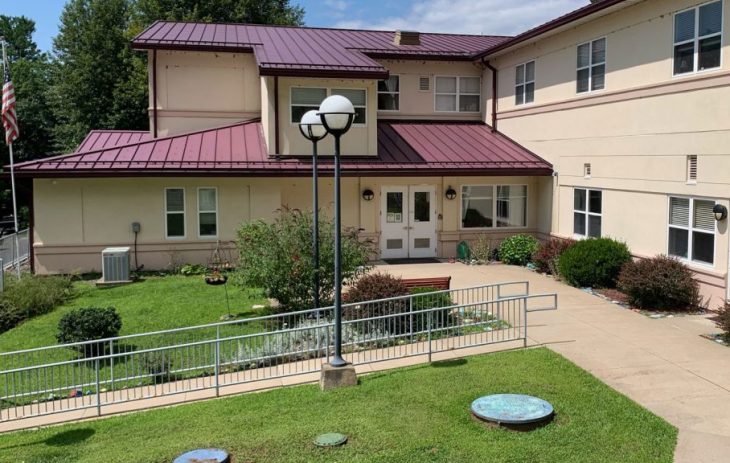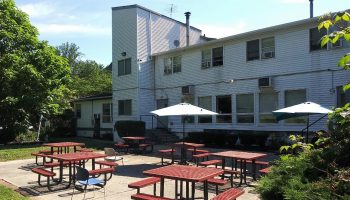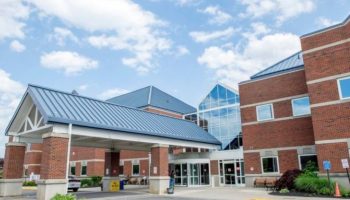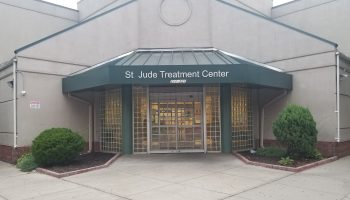About New Hope Manor Stabilization and Rehabilitation
If you’re in New York and need help with substance misuse, you might want to try New Hope Manor. They were founded in 1070 as the state’s first residential substance recovery center solely for women. Their facility in Barryville has 53 beds and provides a supportive setting. This program lets pregnant and parenting women keep their newborns close in a licensed children’s room throughout recovery. The facility works with Medicaid Managed Care such as Fidelis Care and MVP Health.
They’re located at Hillside Road about half a mile east of Delaware River within Sullivan County. This rural setting offers a quiet and scenic distraction-free environment for recovery. Most past clients find the recovery services highly transformative, though some comments suggest room for improvement.
Medication-Supported Stabilization
Women with severe cravings or psychiatric issues are first stabilized in a structured setting before rehab. Services encompass medically supervised withdrawal alongside individual counseling to build strong coping skills and manage cravings.
Counseling is joined by withdrawal management to make you as comfortable as possible. Clients are assisted in transitioning to residential rehab once they stabilize and are in good health.
Intensive & Structured Support for Lasting Healing
Their inpatient rehab offers clinical care that supports lasting healing by building self-awareness and self-worth. Clients attend education and psychotherapy sessions that draw from cognitive behavioral techniques and motivational interviewing.
They also receive education and job readiness training to build self-sufficiency and prepare for life in the community. Many clients earn NYS Peer Advocate and Red Cross CPR/First Aid certifications as part of vocational training that builds confidence and job skills. Clients can also prepare for the TASC exam to earn their high school equivalency diploma.
Clients improve overall wellness via onsite fitness, recreational exercises, and crafts. Clients enjoy diet-customized meals and 24/7 staff support and guidance. The program encourages spiritual growth with transportation provided to local places of worship.
Levels of Care
-
Inpatient
Inpatient and residential programs provide round-the-clock medical and emotional support as you live at the treatment facility. This level of care may be recommended if you have severe addictions or mental health conditions since it removes outside distractions and allows you to focus solely on therapy.
-
Aftercare
Aftercare programs provide ongoing support after you complete a rehab program. They may include several components to help you maintain sobriety including therapy, community support groups and relapse prevention strategies. This gives you a network of resources as you reintegrate into your daily life.
-
Dual Diagnosis
Dual diagnosis programs address substance use disorders and co-occurring mental health conditions simultaneously. This integrated approach to care improves the likelihood of long term recovery and stability by addressing the root causes of addiction.
-
Sober Living
Sober living homes provide a supportive and substance free environment for you to live in as you overcome your addiction. Residents must follow house rules and support each other's recovery journeys. Sober living fosters accountability and stability during this critical phase of recovery.
Detox Service Setting
-
Inpatient Detox
Inpatient detox occurs in a dedicated treatment facility. You’ll live there around the clock and receive intensive medical support and supervision to help manage your withdrawal symptoms. It is suitable for individuals with moderate to severe addictions as it ensures a stable detox environment.
Programs
-
Adult (18+)
Adult programs address the substance use and life challenges specific to adults. Therapists can deliver sessions in individual, group and family settings. Services often include job support and life skills training in a structured environment.
-
Alcohol Detox
Alcohol detox programs offer medical support to help individuals withdraw safely from alcohol. Your care team may use medications to ease your symptoms and provide medical monitoring to address complications.
-
Cognitive Behavioral Therapy
Cognitive behavioral therapy focuses on changing harmful thought patterns and behaviors associated with addiction. You’ll learn healthier coping mechanisms by identifying and replacing negative thoughts. This improves your emotional resilience and decreases your relapse potential.
-
LGBTQ Friendly
LGBTQ friendly programs create an inclusive and affirming space for recovery. Treatment is sensitive to issues like discrimination and stigma. You’ll receive support and therapy that respects and acknowledges your unique experiences.
-
Opioid Detox
Opioid detox uses medications to ease severe withdrawal symptoms. It also includes medical supervision to help you manage potential complications. These services allow you to stabilize and begin a recovery plan.
-
Women
Women's programs offer a safe and supportive space to focus on gender specific issues such as trauma, family roles and mental health conditions. Therapists tailor the sessions to address women's needs and foster empowerment in a healing and nurturing environment.
-
Young Adult (18 - 25)
Young adult programs are designed for individuals who are transitioning into adulthood. Topics of discussion typically include identity, independence and peer relationships. Providers may also offer life skills training and career support.
Payment Options
- Medicaid
- Private Insurance
- Self Pay
Accreditations
-
 SAMHSA
SAMHSA
Amenities
- Fitness Center
- Hiking
- Music Room
- Private Rooms
- Yoga Studio
Contact
35 Hillside Road
Barryville, NY 12719





